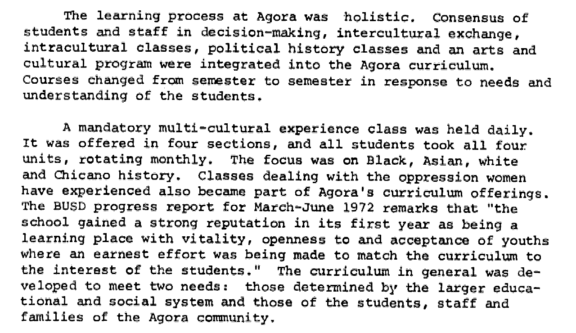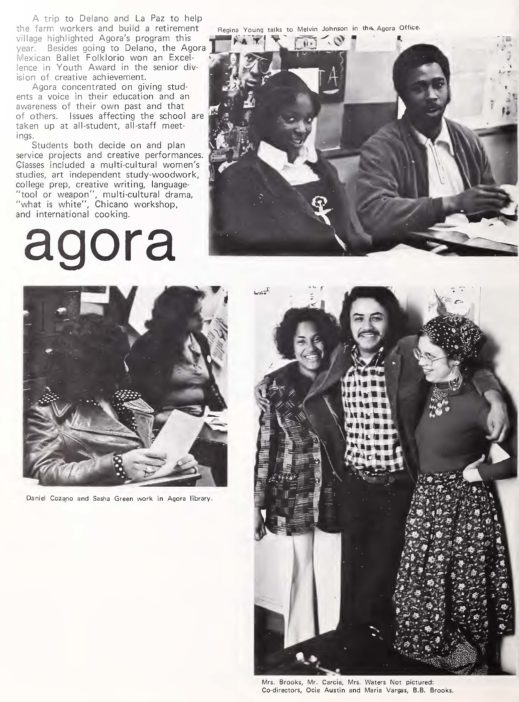Agora was an Experimental School Project housed within Berkeley High and open to tenth, eleventh and twelfth graders. Like Community High (later Genesis), from which it emerged, it had a radically democratic structure in which students had a strong part in governing themselves, partly through regular all-student, all-staff meetings.
Starting in 1973, the school’s version of educational democracy decidedly put the voice of students above the voice of parents: parent participation was dropped from the official list of school objectives, at the request of students who wished to have their autonomy from their parents recognized.
Agora also had a strong program of involvement with communities of color—here suggested by a trip to support farm workers in Delano and another to help build a retirement village.
***
As detailed in a fine-grained independent report on Berkeley’s experimental schools, Agora grew out of the intense student demand that followed the opening of Community High/Genesis, and from the start it was conceived as a dynamic and balanced experiment in multiracial education. It came out of a deliberate effort to tack in a different direction for Berkeley’s ‘alternative schools,’ which at first had been identified in the minds of Berkeley minority parents as an outgrowth of the white counterculture, with a curriculum decidedly not tailored to the needs of their children.
In its first full year — the 1971-1972 school year — its student body of 168 was perfectly split, numerically, between white, Chicano, Black, and Asian-American students, with each group counting 42 students.
As the independent report suggests (p. 215), Agora had an innovative and responsive approach to curriculum development:

Partly because of the proliferation of experimental schools, Agora (like Genesis) experienced declining enrollments. In fall 1974, Agora merged with Genesis, and two years later (1976-77), the school was discontinued due to falling enrollments.
.
